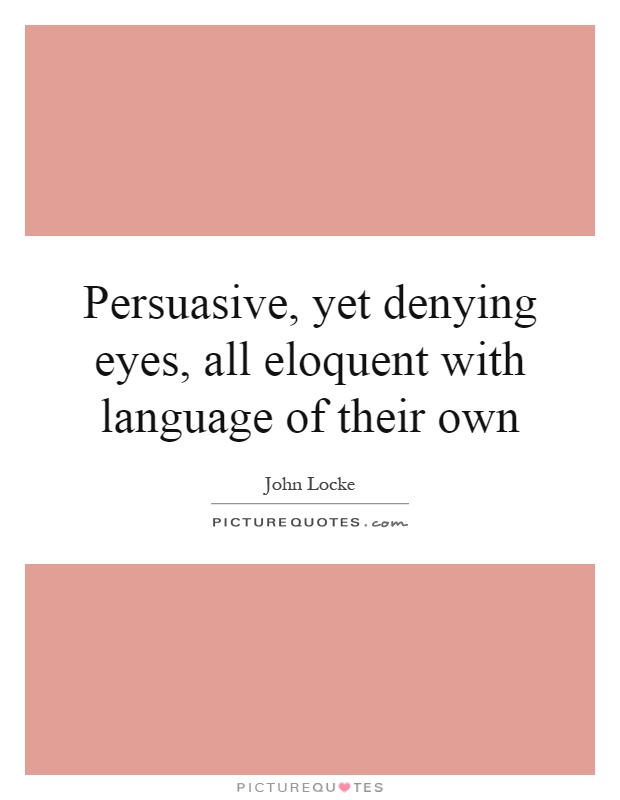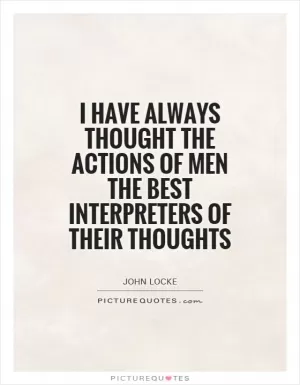Persuasive, yet denying eyes, all eloquent with language of their own

Persuasive, yet denying eyes, all eloquent with language of their own
John Locke, a prominent philosopher of the Enlightenment era, is often associated with his ideas on empiricism, individual rights, and the social contract. However, one aspect of Locke's philosophy that is often overlooked is his belief in the power of observation and perception, particularly through the eyes. Locke believed that the eyes were not only windows to the soul but also powerful tools of persuasion and denial.Locke's concept of "persuasive, yet denying eyes, all eloquent with language of their own" can be interpreted in several ways. On one level, Locke may have been referring to the ability of individuals to use their eyes to communicate their thoughts, feelings, and intentions without saying a word. The eyes, according to Locke, have a language of their own that can convey a wide range of emotions and messages to others. This nonverbal form of communication can be incredibly persuasive, as it allows individuals to express themselves in a way that is often more powerful and convincing than words alone.
At the same time, Locke also recognized that the eyes could be used to deny or conceal one's true thoughts and feelings. Just as the eyes can be used to persuade others, they can also be used to deceive or mislead. Locke understood that the eyes have the power to mask one's true intentions, creating a facade that can be difficult to penetrate. In this sense, the eyes can be both a tool of persuasion and a tool of denial, depending on how they are used.












 Friendship Quotes
Friendship Quotes Love Quotes
Love Quotes Life Quotes
Life Quotes Funny Quotes
Funny Quotes Motivational Quotes
Motivational Quotes Inspirational Quotes
Inspirational Quotes